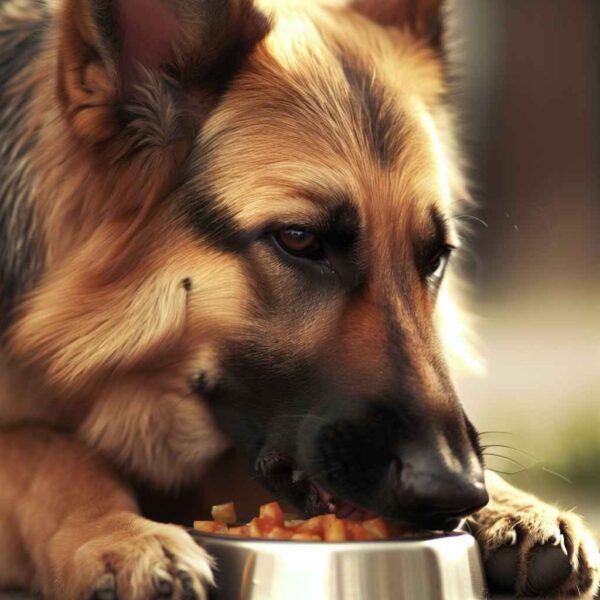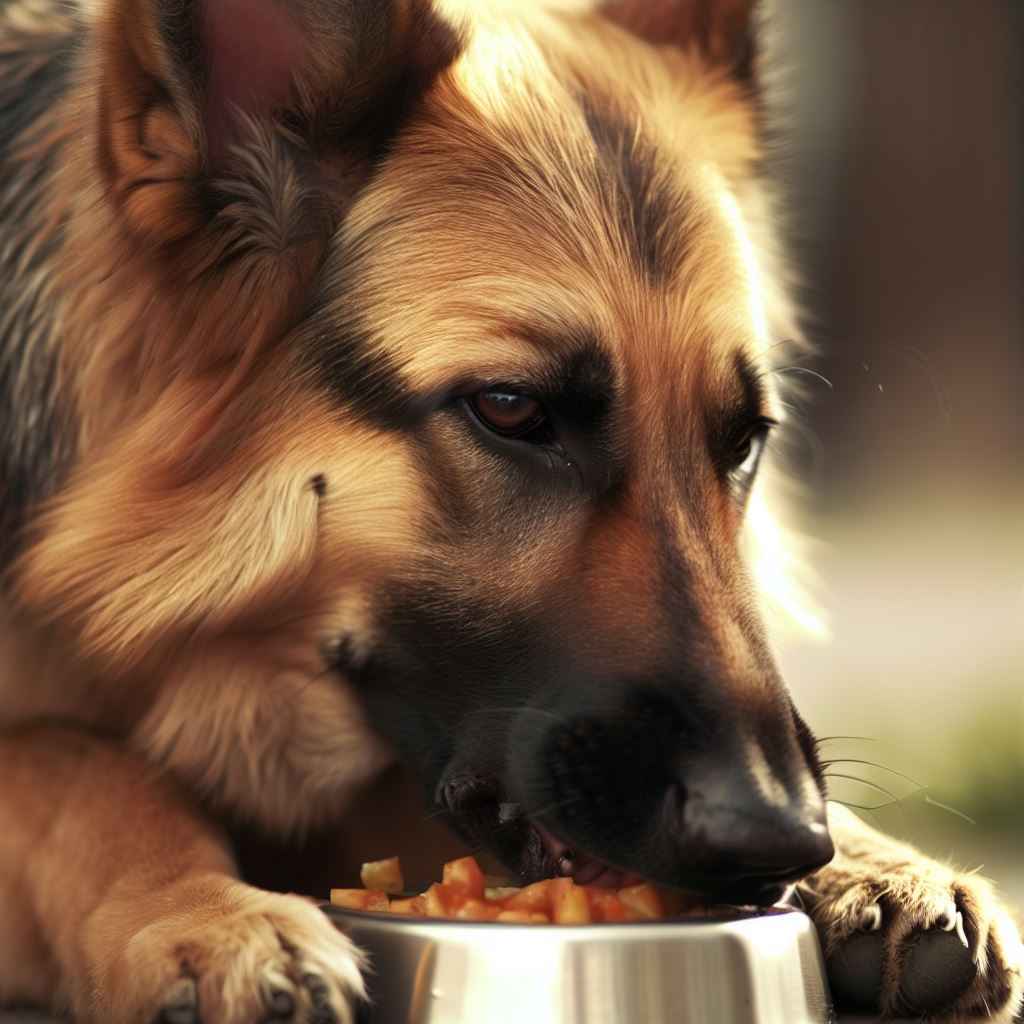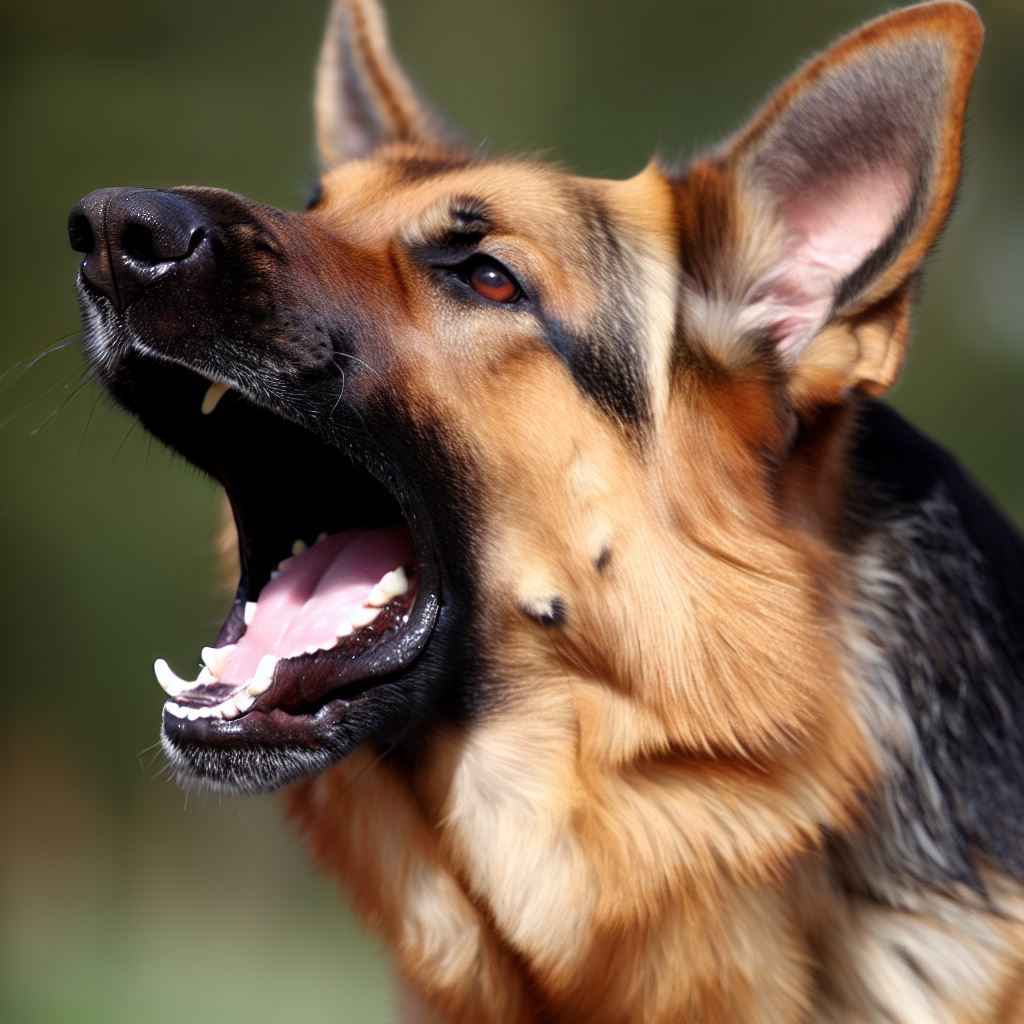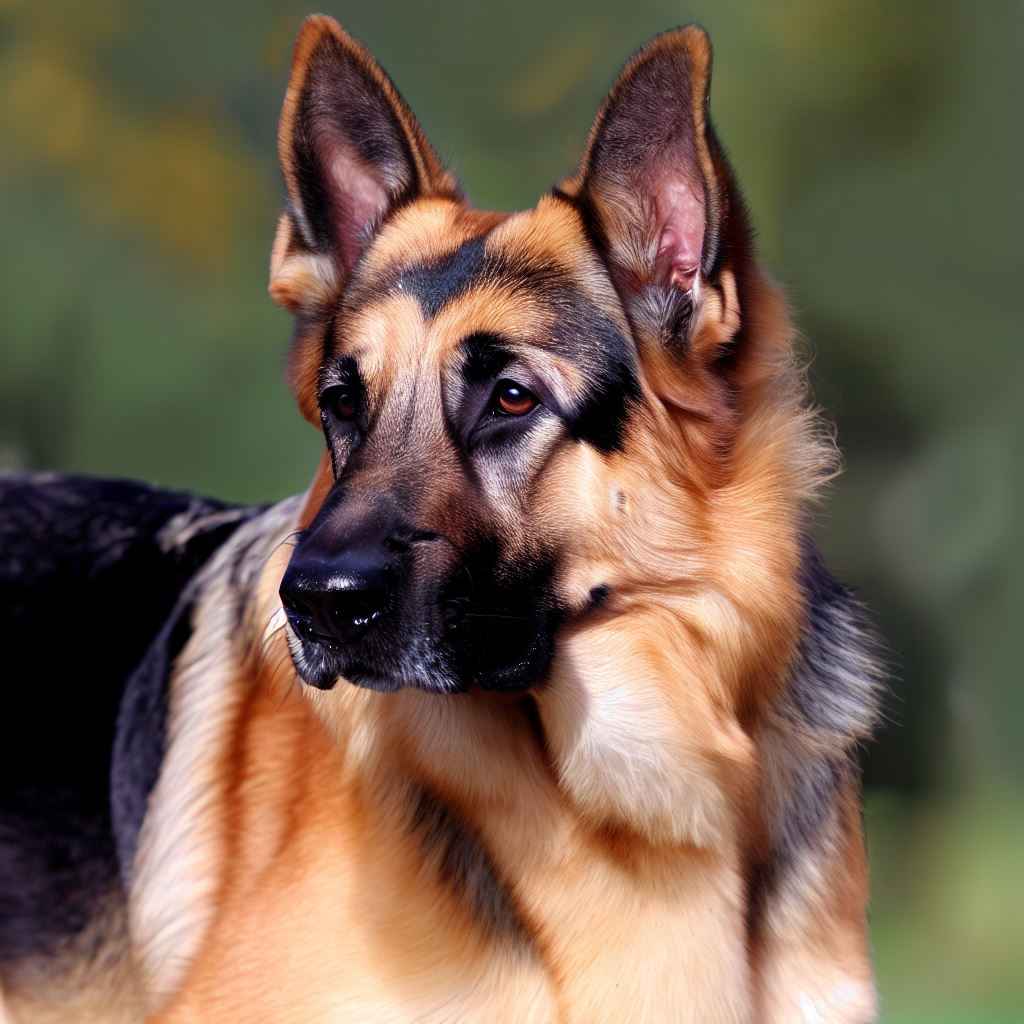What Thing Do German Shepherd Eat?
Answer to the question What Do German Shepherds Eat? German Shepherds need a balanced diet that includes vitamins, minerals, proteins, carbs and fats. High quality commercial dog food is dry kibble or canned which is a great choice for their food because it is made precisely to satisfy these needs. A high protein and fat diet is recommended for German shepherds to maintain their energy levels as they are known for their high energy levels. The recommended food options include chicken, beef, turkey, lamb, fish and rabbit.
Proteins are crucial for muscle development so you should look for a dog the food with a protein source like chicken, beef or fish listed as the primary ingredient. Carbohydrates are found in grains or vegetables that provide energy. Healthy fats from sources like chicken fat or fish oil support skin and coat health. While commercial dog food is convenient or incorporating fresh foods like lean meats, vegetables and some fruits can add variety and nutrients to their diet. Avoid feeding them harmful foods like chocolate, grapes, or onions as these can be toxic to dogs.
Always consult with a veterinarian to determine the best diet plan for your specific German Shepherd as an individual needs may vary based on age, activity level and any existing health concerns. Providing fresh water at all times is equally important to keep them hydrated. Overall, a balanced and nutritious diet is key to ensuring your German Shepherd’s well-being and longevity.
Which Food Is Best For German Shepherd?
The Dog Food Advisor has listed the top German shepherd dog food brands as of September 2023 which includes the Diamond Naturals’ Large Breed Adult Chicken and Rice, Eagle Pack Power’s adult dog food, Victor Purpose Nutra Pro’s dog food, Iams ProActive Health’s large breed food and Orijen’s large breed puppy food etc. The ideal German Shepherd food should be tailored to their age, activity level and health concerns. You can also know about What kind of food do german shepherd need?
High-Quality Commercial Dog Food:
Look for reputable brands that list a protein source like chicken, beef, or fish as a primary ingredient. Opt for formulas designed for large breeds or active dogs.
Consider Special Needs:
Puppies need food formulated for growth while senior German Shepherds benefit from food tailored to joint health. Consult your vet for guidance on specific life stage requirements.
Protein-Rich Diet:
German Shepherds are active dogs that thrive on a diet rich in high-quality proteins. Ensure that at least 18-22% of their diet consists of protein.
Balanced Nutrition:
Look for a balanced formula with adequate carbohydrates, healthy fats, vitamins and minerals. Omega-3 fatty acids are beneficial for their coat and skin health.
Avoid Fillers:
Avoid foods with excessive fillers like corn, wheat and soy as they provide little nutritional value and can cause allergies.
Fresh Foods:
Supplement their diet with fresh, dog-safe fruits and vegetables for added nutrients and variety.
Regular Feeding Schedule:
Establish a consistent feeding routine to maintain their digestive health.
Consult Your Vet:
Always consult with a veterinarian for personalized dietary recommendations and to address any specific health concerns.
Can German Shepherd Eat Any Food?
German Shepherds cannot eat any food. They have a robust digestive system but is vital to provide them with a balanced and safe diet to ensure their well-being. Various human foods including peanut butter, carrots, chicken, fish, apples and oats are safe for German shepherds to eat. To guarantee for their wellbeing it is essential to serve them balanced meals that satisfy their various nutritional requirements.
No to Harmful Foods:
They should avoid the toxic foods like chocolate, grapes, onions, garlic and avocados as they can leads to a potential life threatening risk.
Balanced Nutrition:
High-quality commercial dog food is designed to meet the nutritional needs of dogs by combining proteins, carbohydrates, fats, vitamins and minerals.
Avoid Excessive Fat:
While fats are essential that too much can lead to obesity and digestive issues. It is crucial to regulate their fat intake.
Protein Needs:
German Shepherds need a diet rich in protein about 18-22% for muscle development but excessive protein can strain their kidneys.
Fresh Foods:
Incorporating dog-safe fresh foods like lean meats, vegetables and some fruits can provide added nutrients and variety.
Consult a Veterinarian:
You should consult with a vet to determine the best diet plan for your specific German Shepherd considering factors like age, activity level and health conditions.
Is Milk Good For German Shepherd?
If a German Shepherd is not lactose intolerant but they can drink milk. It is advisable to feed milk in moderation because it is high in fat and natural sugars but also high in calcium, vitamin D, potassium and vital amino acids. When it comes to German Shepherds and dogs in general, milk is a subject that has some controversy. While milk is a common food for many people, mature dogs especially German Shepherds lose the capacity to digest lactose as they become older.
Many mature dogs including some German Shepherds develop lactose intolerance which means that if they ingest milk or dairy products but they may experience digestive problems including diarrhea, flatulence or upset stomach. Puppies on the other hand typically have higher levels of lactase but the enzyme needed to digest lactose and can tolerate milk better. Some breeders or owners may choose to give puppies specially formulated puppy milk replacers if the mother’s milk is not available. If you want to give milk to your adult German Shepherd then be sure to do it sparingly and watch out for any negative responses.
Always choose milk alternatives made specifically for dogs that are lactose-free or low-lactose since these are less likely to cause intestinal issues. The healthiest and safest option for hydrating your German Shepherd is water. For nutritional advice that is particular to your dog’s requirements you could speak with your veterinarian.
How Much Should A German Shepherd Puppy Eat?
Determining how much to feed a German Shepherd puppy is essential for their growth and development. The 12 weeks olds puppy should consume 4 meals daily each containing 1 1/2 to 2 cups of food. 6 to 9 months olds should consume 2 to 3 cups of food, 9 to 12 months olds should consume 3 to 3 1/2 cups and 12 months and olders should consume 3 to 4 cups of food. The recommended amount of food for children depends on factors age, weight, activity level and the specific food being used.
Follow Feeding Guidelines:
Most commercial puppy foods have feeding guidelines on the packaging. These guidelines typically suggest the amount of food based on your puppy’s weight and age. Start with these recommendations as a baseline.
Divide Meals:
Puppies often need to eat more frequently than adult dogs. Divide their daily portion into several meals usually three to four times a day to avoid overloading their stomach.
Monitor Growth:
Keep an eye on your puppy’s growth and weight. Adjust their food portion as they grow. Consult your vet for specific recommendations especially during growth spurts.
Avoid Overfeeding:
Overfeeding can lead to obesity and related health issues. It is better to slightly underfeed than overfeed as excess weight can be harmful to growing joints.
Activity Level:
Consider your puppy’s activity level. If they are highly active so, they may need more calories than a less active puppy.
Regular Weighing:
Regularly weigh your puppy to ensure they are gaining weight steadily. Sudden weight loss or excessive weight gain can be signs of a problem.
Consult Your Vet:
Your veterinarian can provide personalized recommendations based on your puppy’s specific needs.
Facts & Features Of German Shepherd:
The German Shepherd is a remarkable breed known for its intelligence, loyalty and versatility. Here are some intriguing facts and features of this iconic breed:
- German Shepherds, developed in Germany in the late 19th century, were initially herding dogs.
- They gained recognition for their versatility and intelligence by making them ideal for various roles.
- Medium to large-sized dogs with a strong, athletic build, typically have a double coat and range in colors from black to solid black.
- They are among the most intelligent dog breeds.
- They are quick learners and excel in obedience training by making them ideal for various working roles including police, search, rescue and assistance dogs.
- They are known for their loyalty and protective instincts by making them excellent family dogs and guard dogs.
- German Shepherds are known as velcro dogs form strong bonds with their owners and require regular exercise and mental stimulation.
- They enjoy agility, tracking and fetch.
- However, they are prone to health issues like hip dysplasia and degenerative myelopathy so responsible breeding and regular vet checkups are crucial for their health.
- German Shepherds are used in various roles from herding and police work to search and rescue, therapy and as loving family pets.




